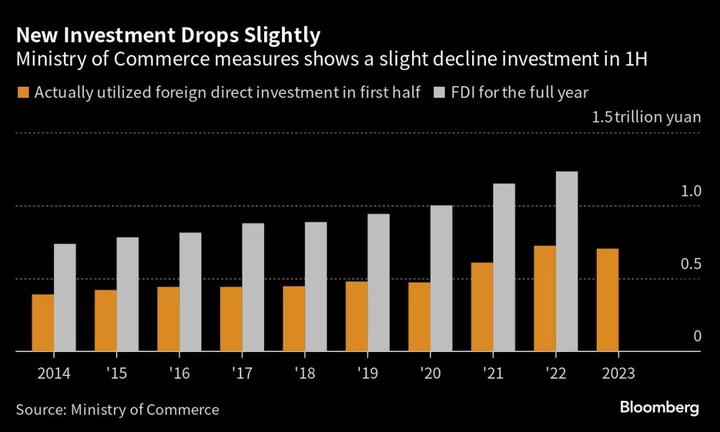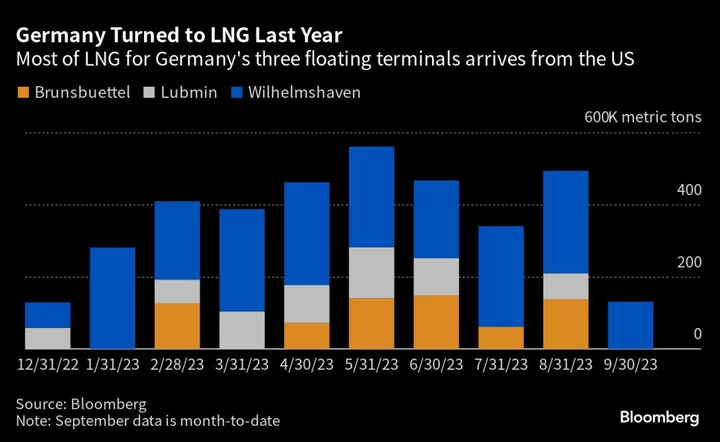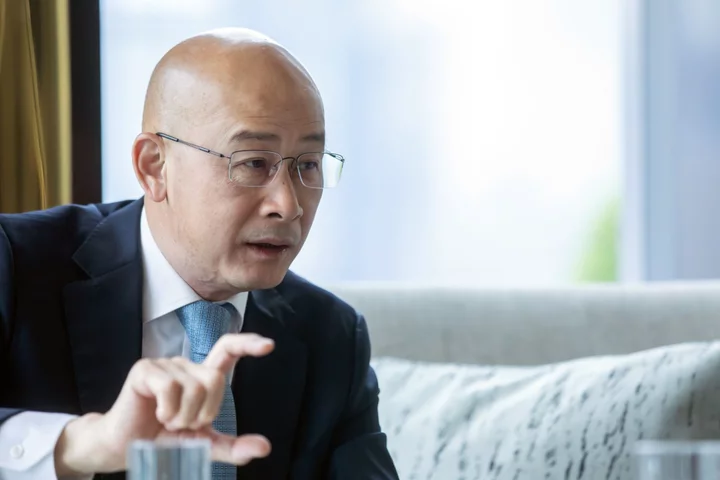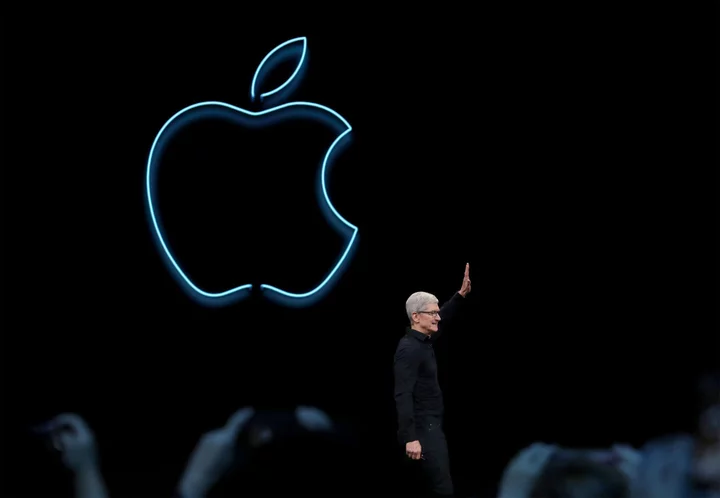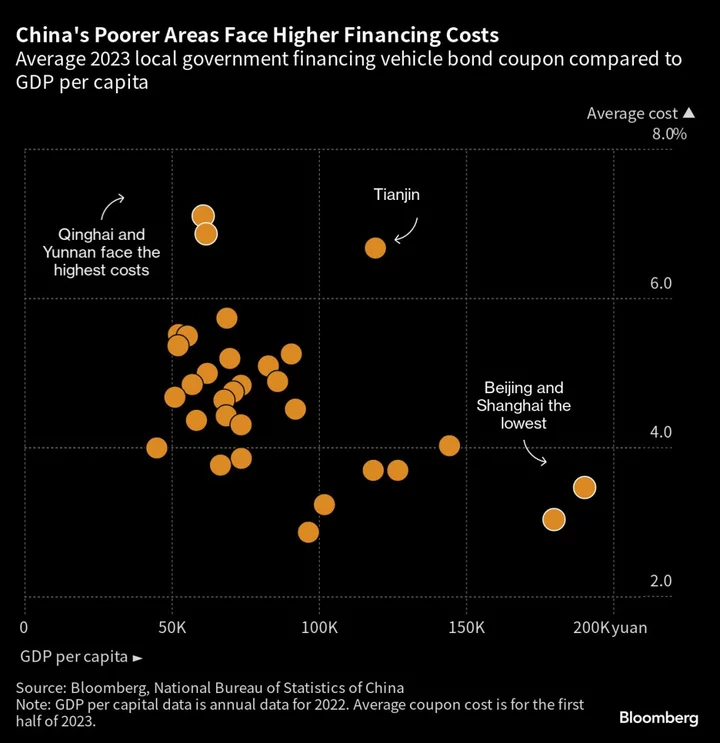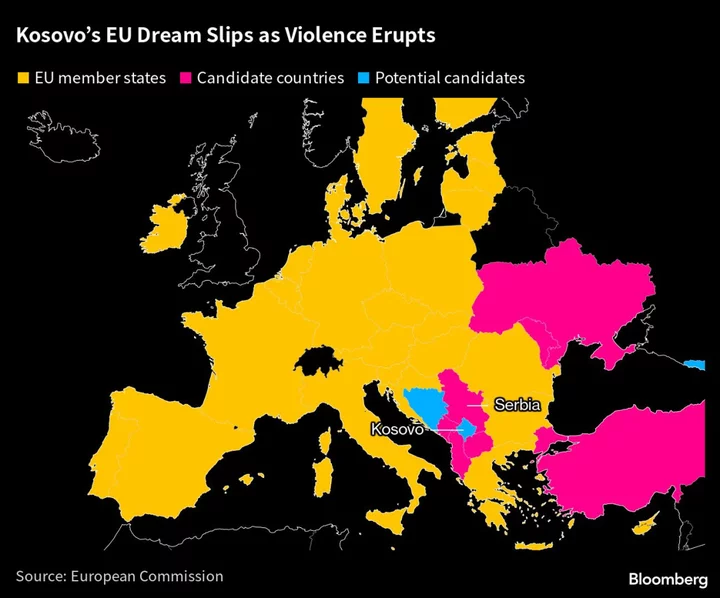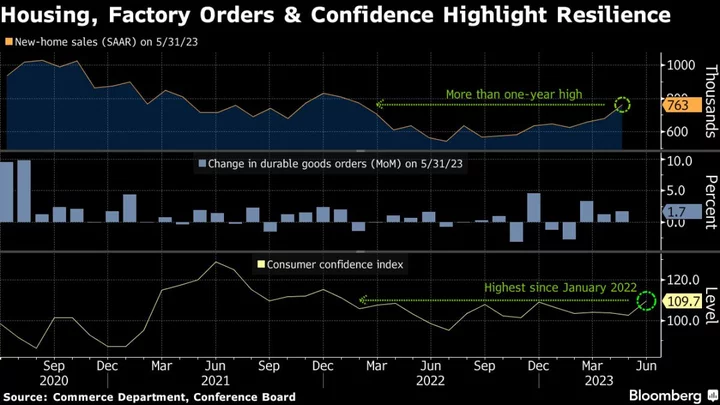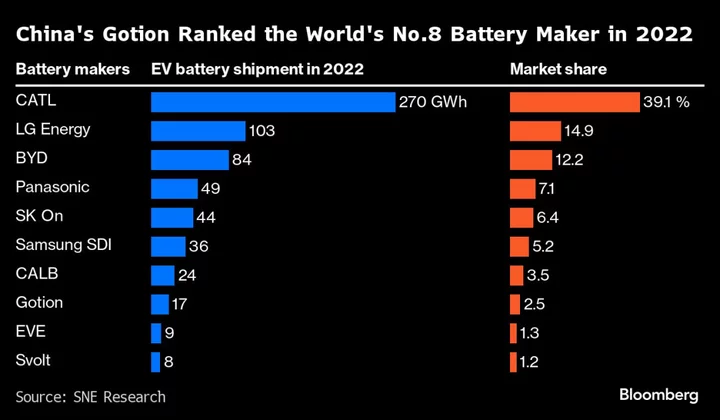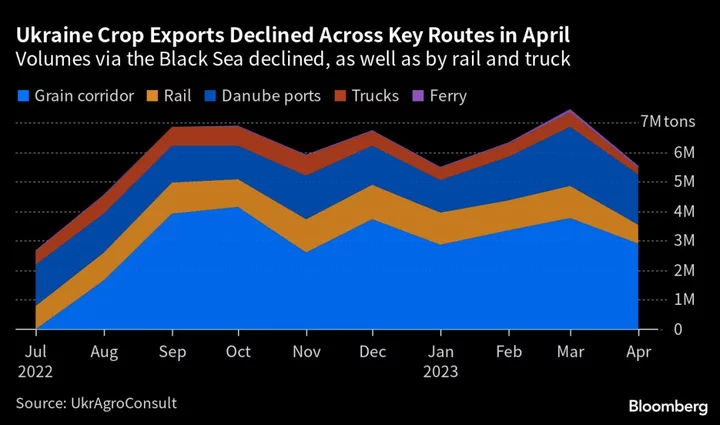One measure of new foreign investment in China fell to the lowest level in 25 years in the second quarter, fueling concerns about how much geopolitical tensions and the economy’s slowing recovery can hurt business confidence.
Direct investment liabilities — a gauge of foreign direct investment in China — slumped to just $4.9 billion in the April-June period, according to figures released by the State Administration of Foreign Exchange on Friday. That was down 87% from the same period last year and was the smallest amount in any quarter in data back to 1998.
“The plunge in the FDI measure is alarming,” said Michelle Lam, greater China economist at Societe Generale SA. “That could mean there is still new investment coming in, but some firms are re-investing less of their existing profits” as firms talk more about “supply chain diversification,” she added.
SAFE’s data, which gauges net flows, can reflect trends in foreign company profits, as well as changes in the size of their operations in China, according to economists.
China’s appeal to foreign companies as a place to invest has been damaged in recent years. US tariffs during the trade war caused costs to rise, the pandemic limited access to the country for almost three years and rising geopolitical tensions have caused firms to rethink their risks.
The economy’s waning recovery this year has further dampened confidence among overseas firms, which have seen profits fall at double-digit rates amid subdued consumer demand in the country. In addition, Chinese companies in the car industry are becoming increasingly competitive and cutting into the sales and profits of foreign firms. Overseas carmakers have been one of the biggest investors in China.
In July, Japan’s Mitsubishi Motors Corp.’s decided to suspend its China operations after years of sluggish sales, and Mazda Motor Corp. Chief Executive Officer Masahiro Moro said that business is likely to suffer in China due to stiff competition in the world’s biggest electric-vehicle market. Last year Stellantis NV shuttered its only Jeep factory in China and announced that its Opel brand was pausing a planned expansion.
Some overseas executives have also said they’re spooked by the government’s show of a tightening grip on security, such as a probe earlier this year into expert consultancies used by firms to operate in China.
Top officials including President Xi Jinping have tried to strike a more favorable tone for foreign companies in recent months as part of the efforts to bolster economic growth, meeting in Beijing global business leaders including Jamie Dimon and Elon Musk. However, it remains to be seen how effective this will be in turning around pessimism about doing business in the country.
Separate government figures showed FDI was 2.7% lower in January-June of this year compared with a year ago — the first decline in three years, according to earlier data published by the Ministry of Commerce, which counts gross inflows.
That left total FDI at about $41 billion in the second quarter, according to Bloomberg calculations of official data. MOFCOM’s figures don’t include reinvested earnings of existing foreign firms, and have far less volatility than SAFE’s data, according to Lam.
“Both data sets are showing gradual slowdown of FDI inflows into China in recent years, which is consistent with China’s long term industrial supply chain upgrading and global supply chain diversification,” said Peiqian Liu, Asia economist at Fidelity International.
The slump could be a lot deeper in reality than what both datasets show, analysts including Logan Wright of Rhodium Group wrote in a July report. That’s because the data increasingly measures purely financial transactions — including those by Chinese state-owned companies, rather than foreign corporate decisions, they said.
“As a result, China’s decision-makers may not know when they need to adjust policies more aggressively to attempt to restore business confidence,” they wrote. “Amidst a broader structural slowdown in China’s economy, the delayed reactions could contribute to further losses in productivity and economic growth.”
--With assistance from James Mayger, Tom Hancock and Qizi Sun.

